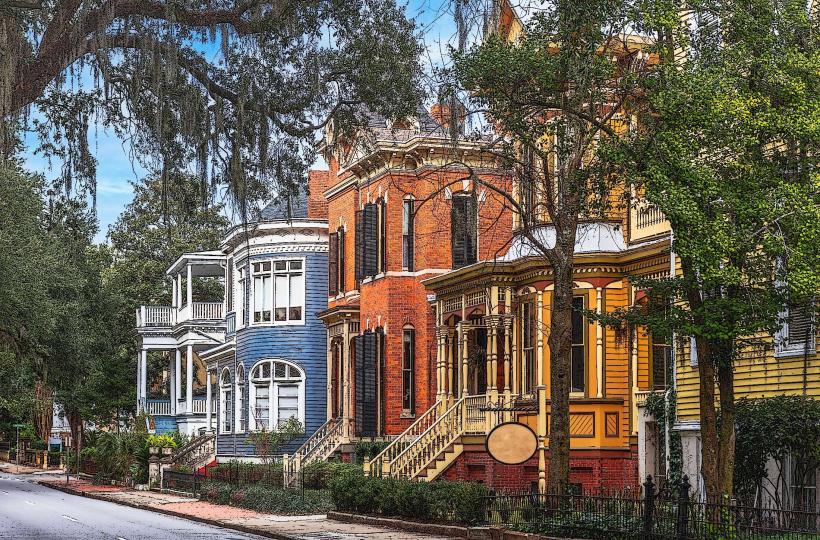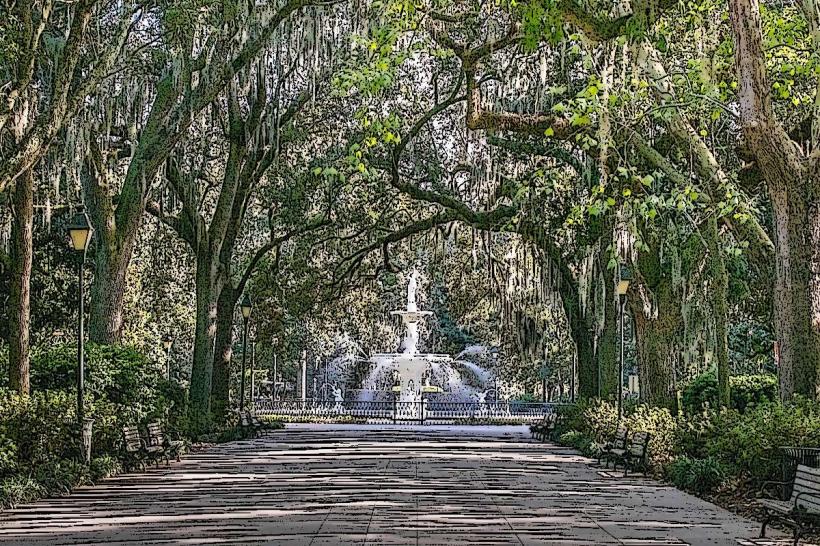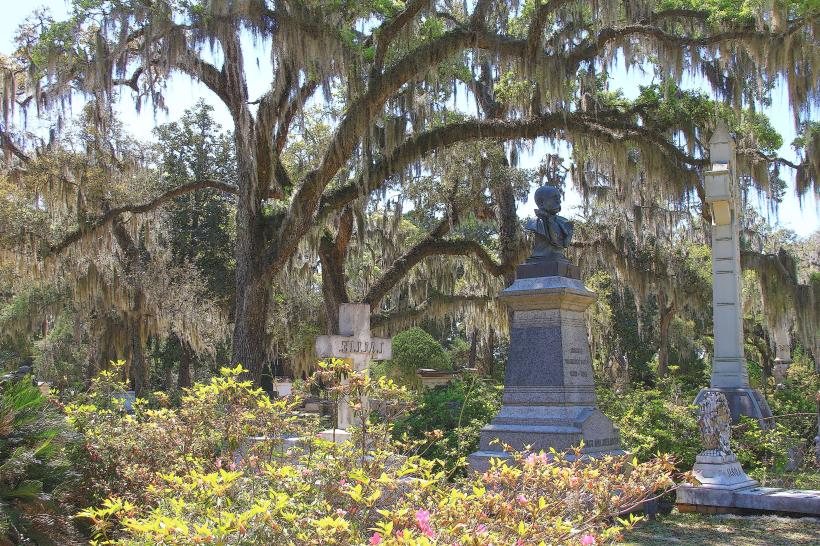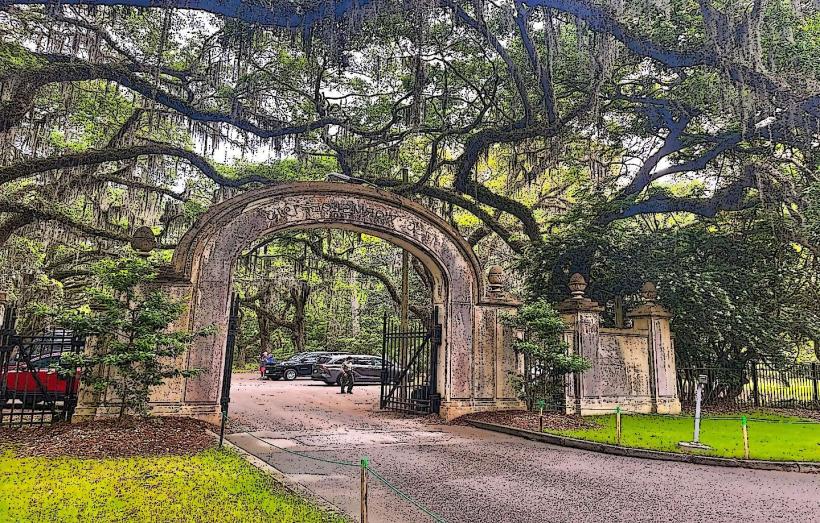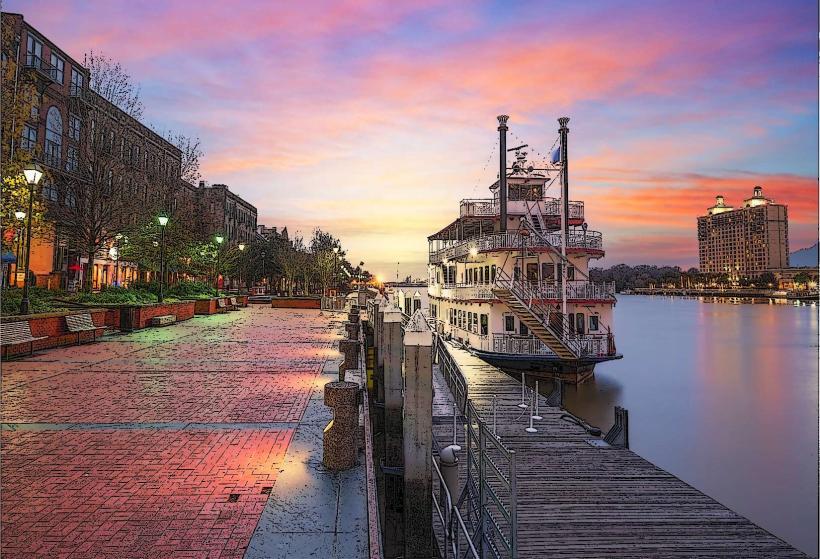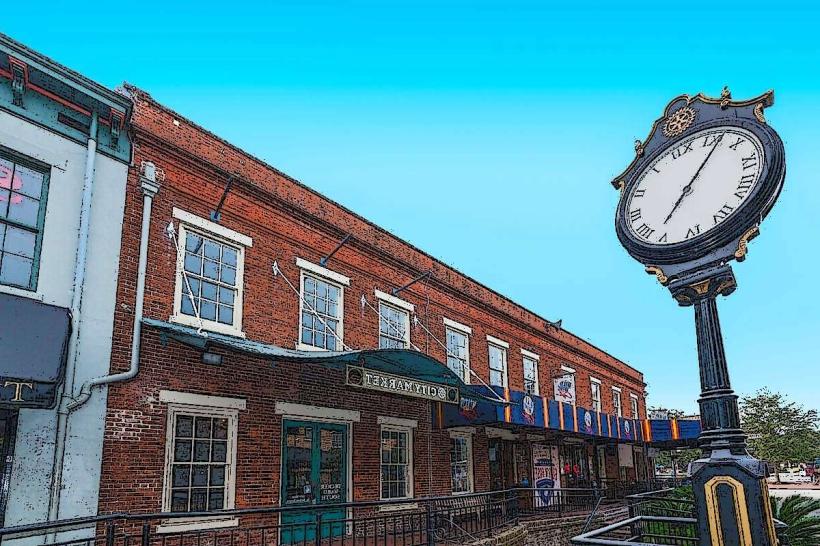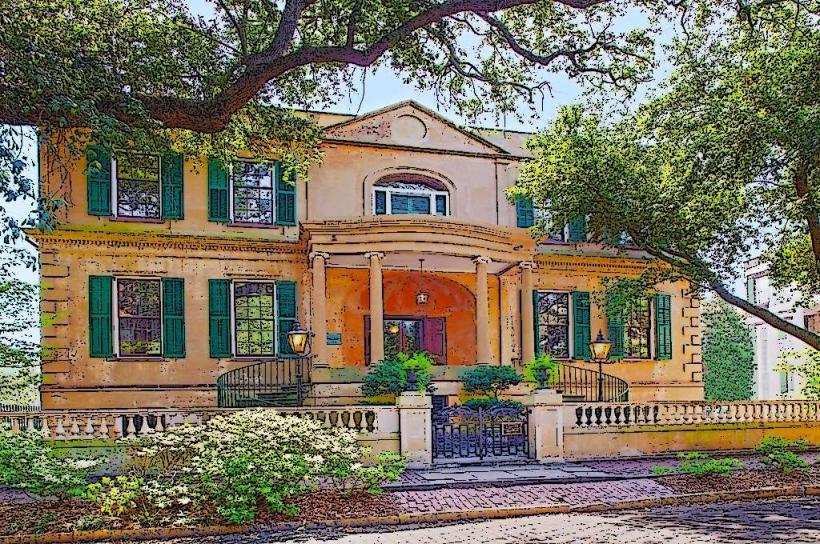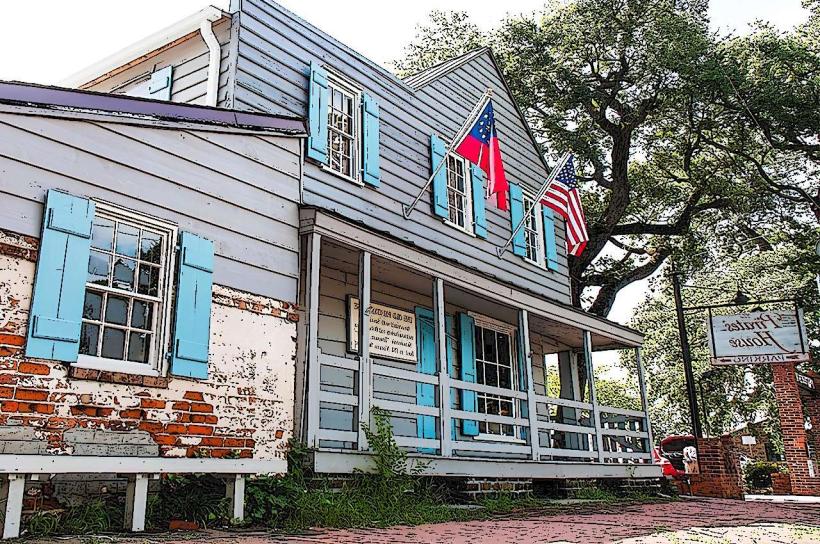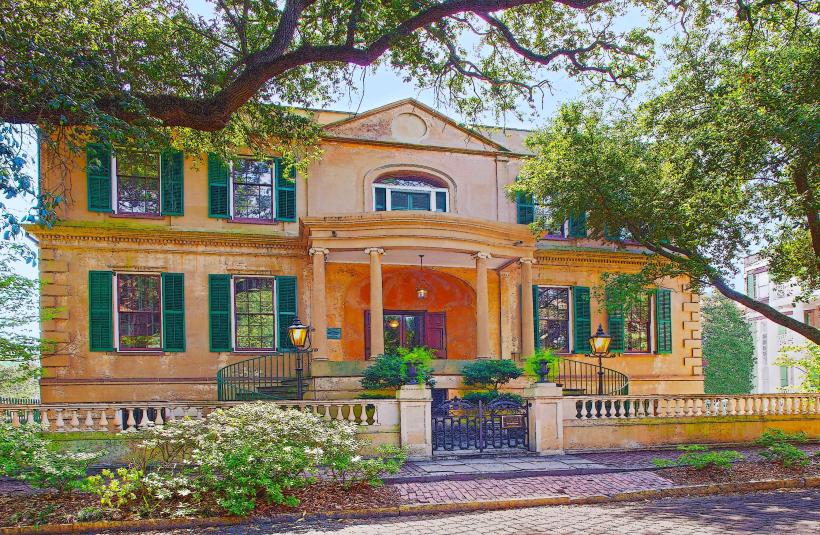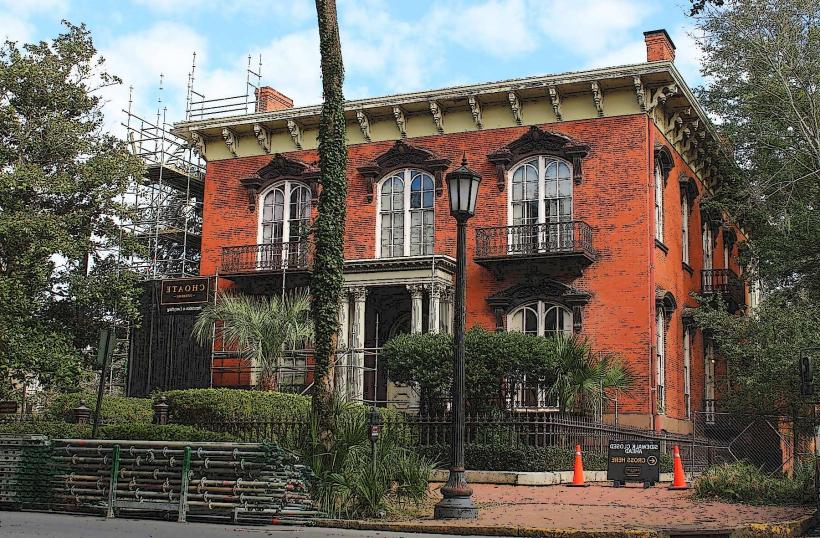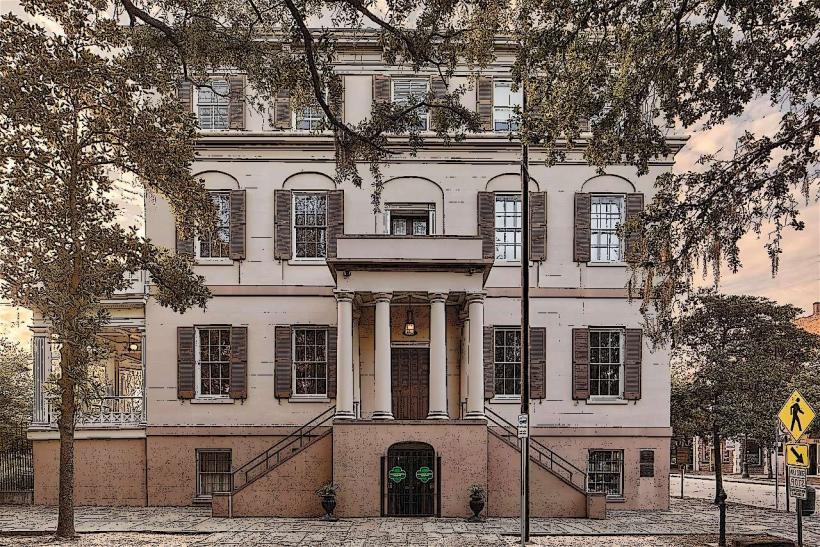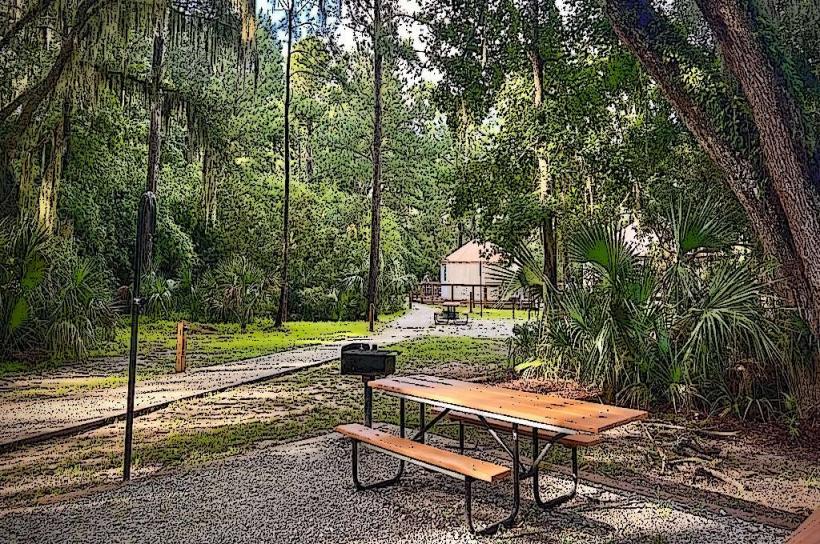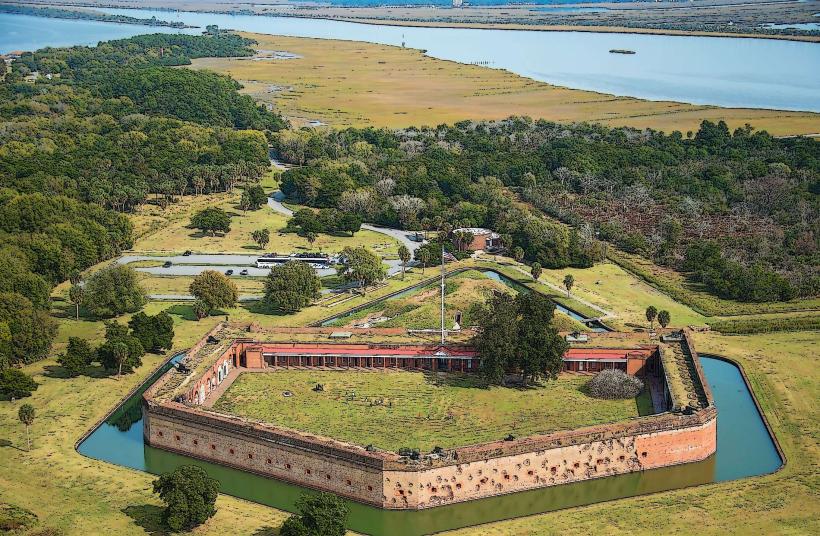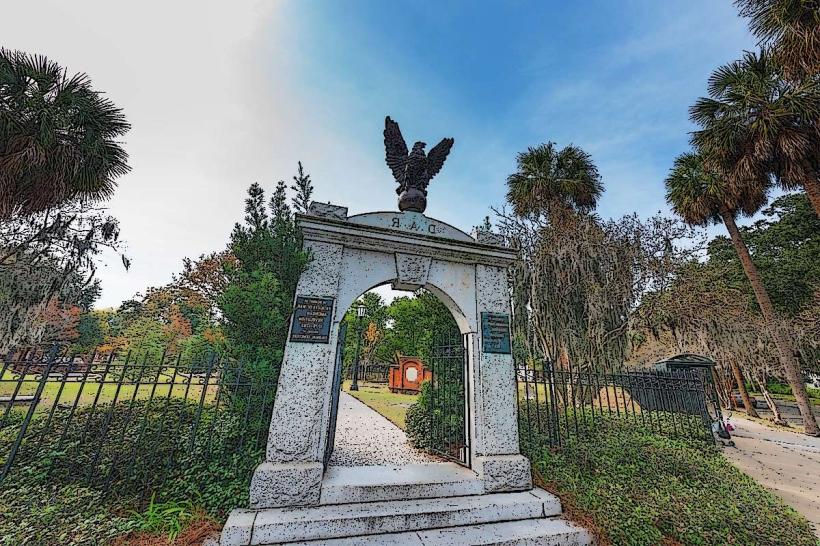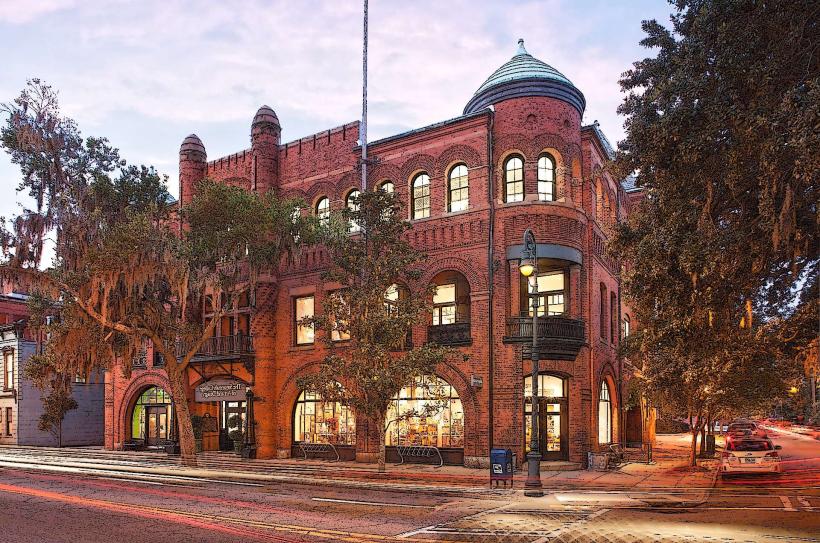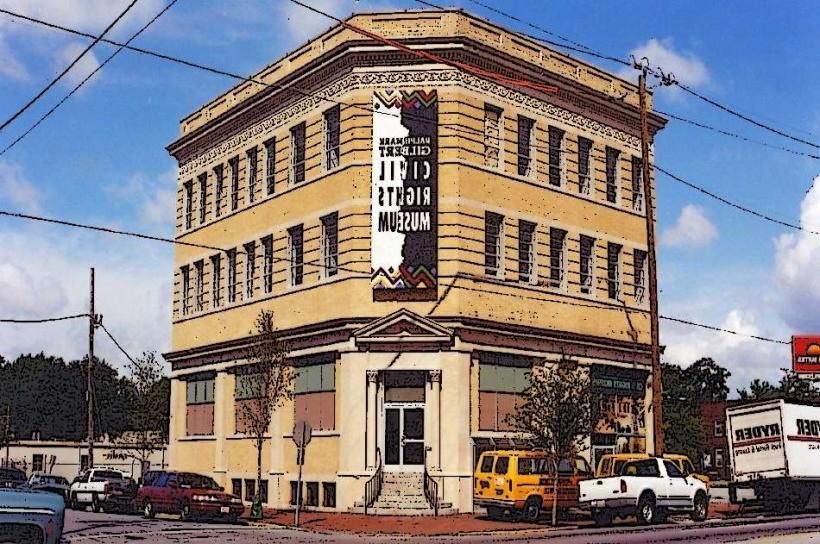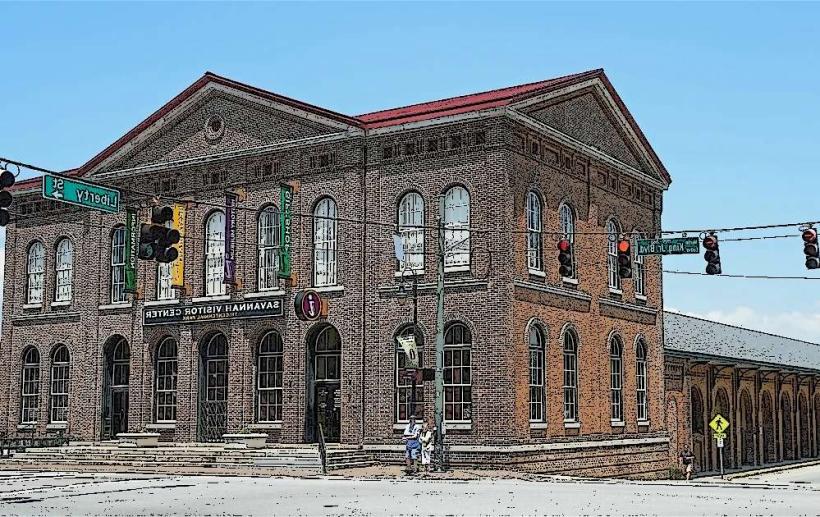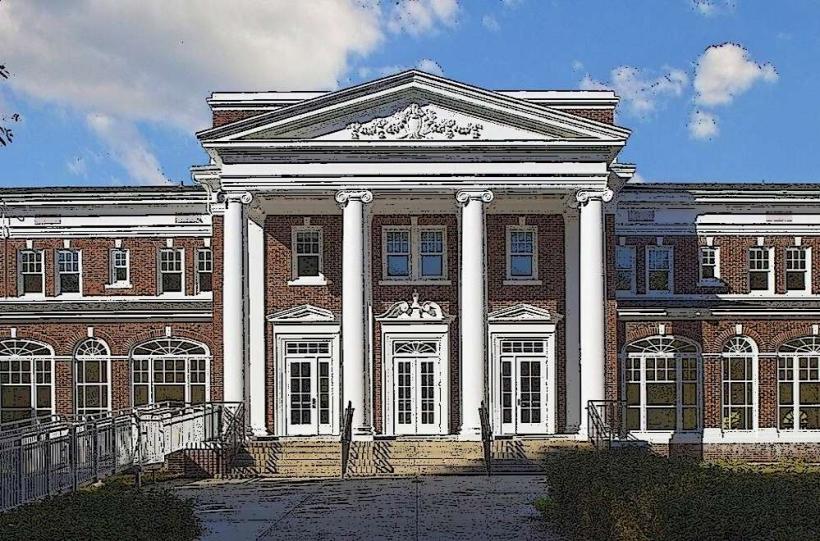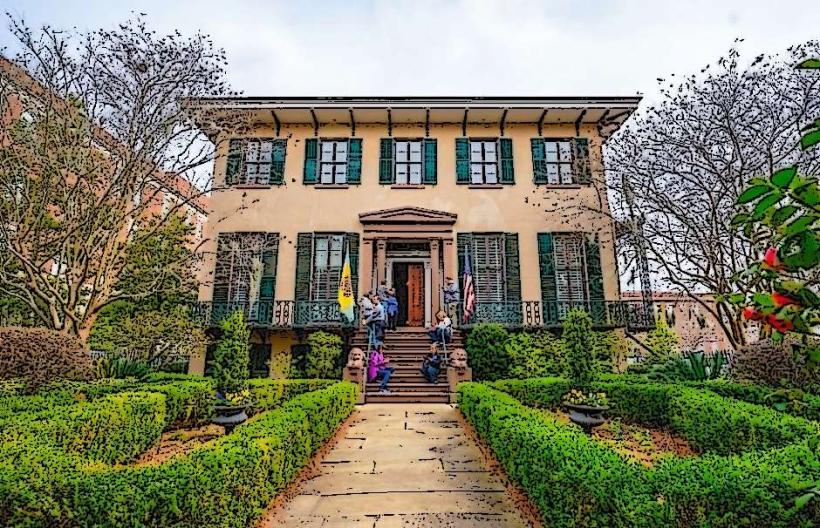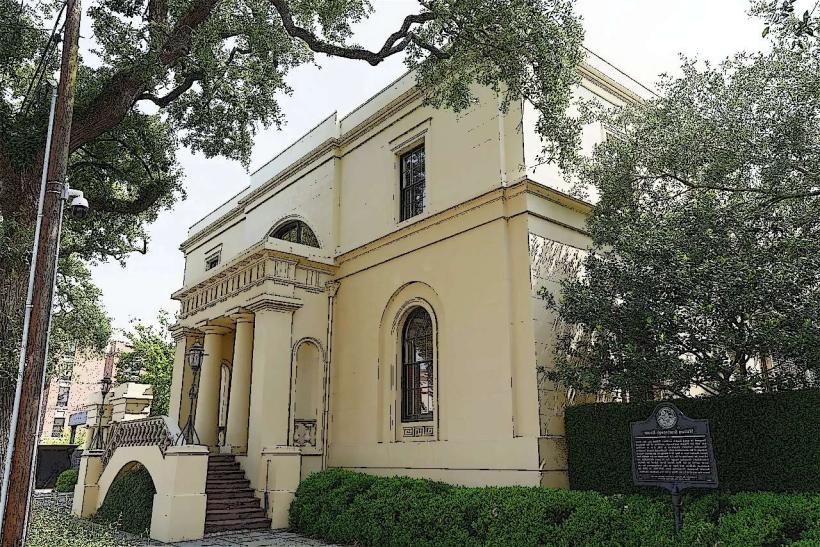Information
Landmark: Sorrel-Weed HouseCity: Savannah
Country: USA Georgia
Continent: North America
Sorrel-Weed House, Savannah, USA Georgia, North America
The Sorrel-Weed House is a historic house museum located at 127 East Oglethorpe Avenue in Savannah, Georgia, USA.
This structure is a significant example of Regency and Greek Revival architecture.
Visual Characteristics
The Sorrel-Weed House is a three-story brick structure with a stuccoed exterior painted a pale yellow. It features a prominent portico with four Doric columns supporting a pediment. The roof is a low-pitched hip roof. Architectural details include elaborate ironwork on the balconies and windows, and a symmetrical facade.
Location & Access Logistics
The house is situated in Savannah's historic district, approximately 0.8km East of the Savannah City Hall. It is accessible via East Oglethorpe Avenue. Limited street parking is available in the vicinity, and metered parking garages are located within a 0.5km radius. Public bus routes, specifically the Chatham Area Transit (CAT) system, serve stops near Chippewa Square, which is adjacent to the property.
Historical & Ecological Origin
Construction of the Sorrel-Weed House began in 1838 and was completed in 1841. It was designed by architect Charles B. Cluskey for Francis Sorrel. The house was later owned by shipping magnate Henry D. Weed. Its original purpose was a private residence.
Key Highlights & Activities
Guided tours of the house are available, detailing its architectural features and historical occupants. Visitors can explore the main floors, including the drawing-room, dining room, and bedrooms. The property also includes a rear garden area.
Infrastructure & Amenities
Restrooms are available for visitors within the house. Limited shade is provided by the portico and trees in the garden. Cell phone signal (4G/5G) is generally consistent in this urban area. Food vendors and restaurants are located within a short walking distance in the surrounding historic district.
Best Time to Visit
For optimal interior lighting during tours, midday hours (10:00 AM to 2:00 PM) are recommended. The weather in Savannah is most temperate during the spring (March-May) and fall (September-November), offering comfortable outdoor conditions for exploring the grounds.
Facts & Legends
The Sorrel-Weed House is reputed to be one of Savannah's most haunted locations. Local lore suggests the presence of several spirits, including that of Matilda Sorrel, who allegedly committed suicide on the property. These stories are often recounted during evening ghost tours.
Nearby Landmarks
- Chippewa Square (0.1km West)
- Colonial Park Cemetery (0.4km Southeast)
- Cathedral of St. John the Baptist (0.6km Southwest)
- Mercer Williams House Museum (0.7km West)
- Forsyth Park (1.2km South)

